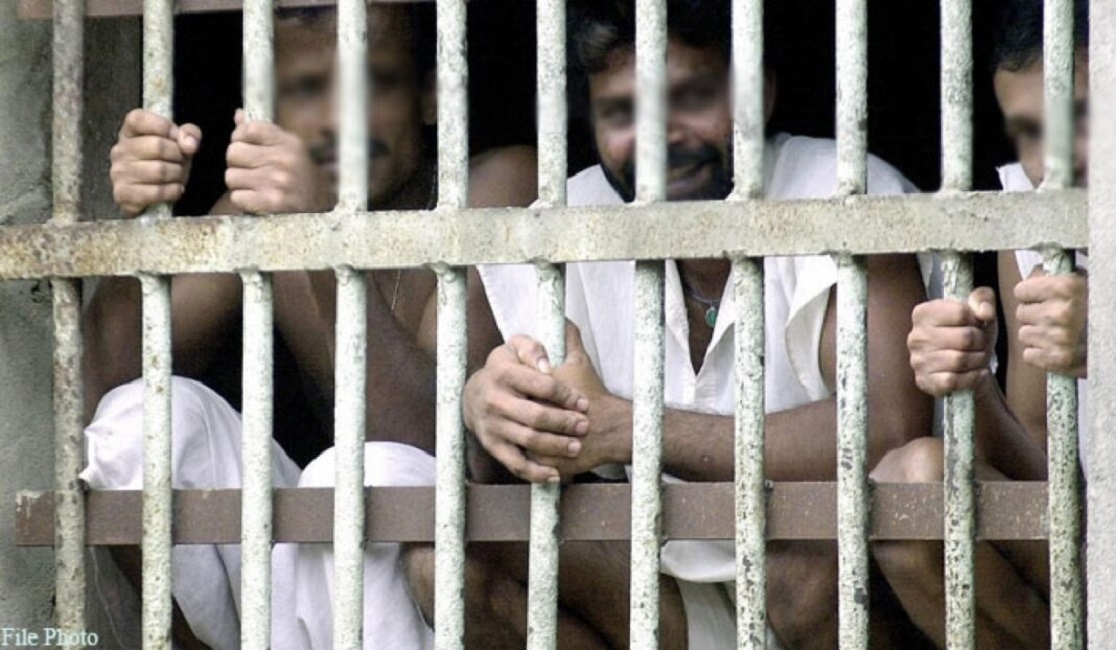A prominent prisoner’s rights organisation claims that giving special treatment to a pro-government prisoner while disregarding the policy of treating all prisoners equally, violates prisoners’ basic rights and causes a massive damage to the rule of law.
The Committee for Protecting Rights of Prisoners (CPRP) opposed releasing Silva on the basis of political affiliations, wealth and power, and this opposition comes in a context where a group of prisoners have launched a protest demanding reliefs.
“Even though we do not oppose the release of a prisoner, if the basis of the release is a person’s social status, wealth, power or political affiliations, we will oppose it,” the CPRP said.
CPRP emphasized this in a press release titled “Releasing Duminda Silva and the lapse of justice.”
President Gotabaya Rajapaksa is facing severe criticism from domestic and foreign parties for releasing former Defense Ministry Monitoring MP Duminda Silva, who had been sentenced to death after being convicted of a murder.
Silva was released to mark Poson Poya, the day on which the arrival of Mahinda Thera took place.
CPRP Chairman Attorney-at-Law Senaka Perera’s statement further read that throughout the recent past, it has been observed how Sri Lankan Presidents abused the pardoning power they were vested with under Article 34 of the Constitution.
He has presented several examples as well.
“Persons such as Milroy Fernando’s wife, Saman Devalaya Basnayake Nilame Anton Thennakoon, Royal Park murder convict Jude Jayamaha and Mirusuvil murder convict Sunil Ratnayake, who had been sentenced to death, received the opportunity to go home in an unjust manner owing to the President’s pardoning powers.”
Perera emphasized that a social discourse was initiated in the recent past with the aim of removing the President’s pardoning powers from the Constitution or subjecting such powers to the supervision of an independent authority, because this unfair and dictatorial act should come to an end.
He pointed out that in a context where Silva’s sentence has been upheld by the Supreme Court, disregarding that decision and acting unjustly would create a huge distrust among the people that Court verdicts are of no use.“If the Court system is rendered inactive when the rule of law is being upheld, it is an extremely dangerous situation,” he said.
Also, if someone portrays Silva’s sentence as a political revenge and attempts to create an inaccurate understanding among the people, such attempts are undemocratic acts, CPRP further stressed. “Sri Lanka’s history bears witness to the fact that the rulers who came to power had resorted to nepotism and favoritism using the term ‘political revenge’.”
CPRP further stressed the importance of embracing the ‘prisoners are humans’ policy, instead of a ‘Duminda is human’ policy, when giving relief to the prison system which comprises over 25,000 prisoners.
The President granting pardon to murder convict Silva has been criticized by the Bar Association of Sri Lanka (BASL), United Nations and the United States.
Prisoners’ protests
The Prisons Department said that several prisoners who had received death sentences had launched a hunger strike at two prisons.
They have launched the hunger strike demanding that their death sentence be commuted to a life imprisonment.
This hunger strike was launched by inmates of the Mahara and Welikada prisons, after Silva, who had been sentenced to death, received a special presidential pardon.
Reporters from Sri Lanka’s capital claimed that some prisoners of the Welikada prison were engaged in the strike atop the roof of the prison.

Leave your comments
Login to post a comment
Post comment as a guest